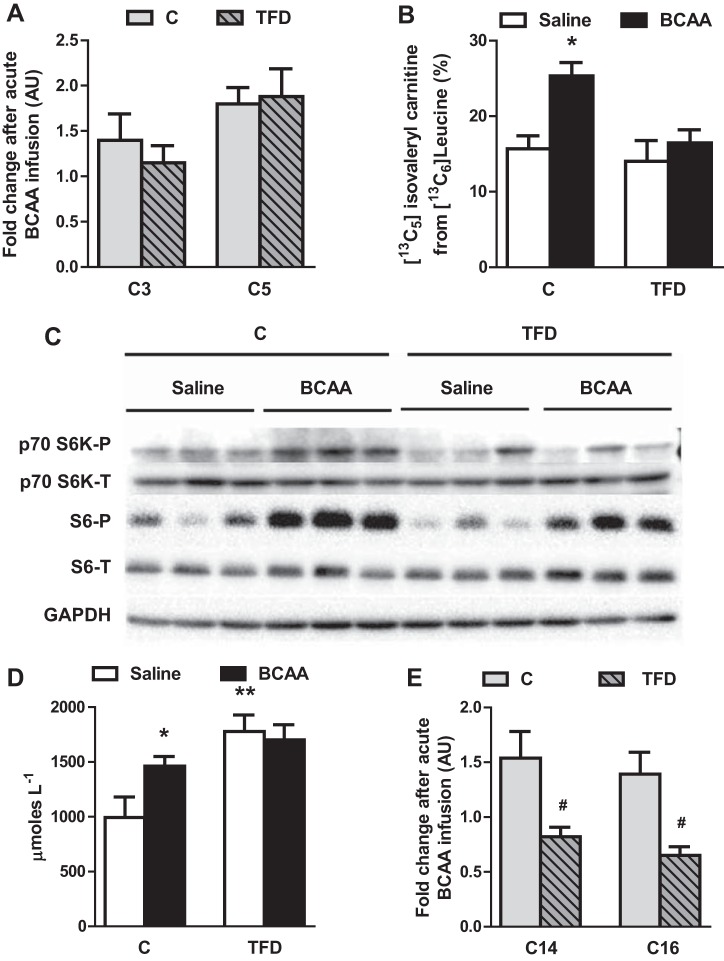Fig. 2.
Hepatic metabolism failed to respond optimally to an acute branched-chain amino acid (BCAA) challenge in mice with nonalcoholic fatty liver disease (NAFLD). A: hepatic short-chain acylcarnitines (C3, propionyl; C5, isovaleryl) responded similarly to BCAA challenge in both control (C) and high-trans-fat diet (TFD) groups. B: incorporation of 13C from intracellular [13C6]leucine into its degradation product [13C5]isovalerylcarnitine was impaired in TFD-fed mice, suggesting an impairment in BCAA degradation. C: BCAA induced phosphorylation of p70S6K and S6, both indices of mammalian target of rapamycin complex 1 activity in control mice, but this induction was blunted in mice with NAFLD. D: BCAA challenge increased plasma ketones in control mice, but this response was blunted in mice with NAFLD. E: the response of long-chain acylcarnitines (C14, myristoyl; C16, palmitoyl) to BCAA challenge was impaired in mice with NAFLD. Values in the bar graph (n = 6–7) are represented as means ± SE. *P < 0.05 between C + saline and C + BCAA; **P < 0.05 between C + saline and TFD + saline; #P < 0.05 between C and TFD.

